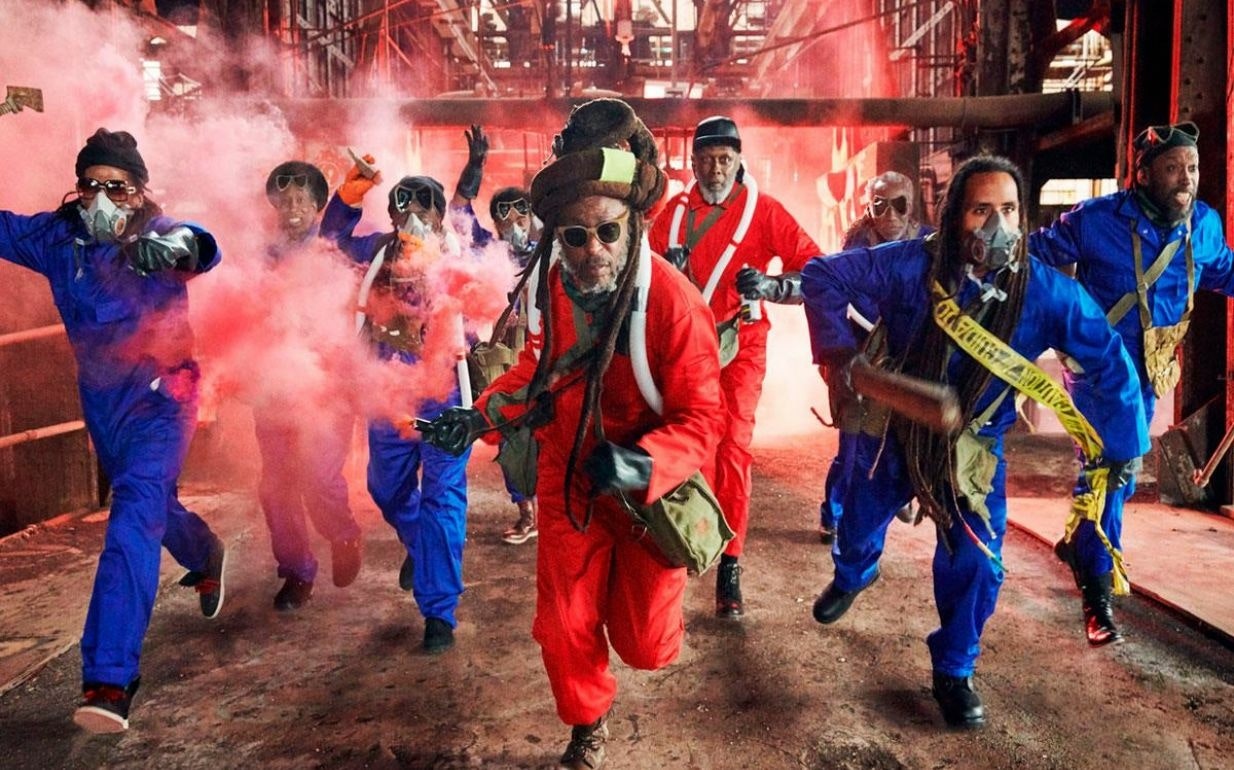

As a result, Steel Pulse had a tremendous audience base for touring but did not fare as well on radio or in dance halls. While other reggae bands at the time were focusing on harmonic melody, heavy bass, and slow Rastafarian drum beats, Steel Pulse fused reggae with a faster, more confrontational rock-inspired delivery.Īlthough Steel Pulse's first two albums were well received, the songs on these albums were created more with live concerts in mind than for dancing. Their lyrics shared an outrage with punk rock musicians, their confrontational style was borne of rock music, and their beat was a mixture of African reggae and England's "Two-Tone" ska music. Steel Pulse's first and second albums cemented their reputation as a reggae band with punk rock and ska undertones. In spite of this, Steel Pulse's first two albums on the Mango label in 19, Handsworth Revolution and Tribute to the Martyrs, have a ska beat and feel to them, which reflects the era in which they started. Unlike the ethnically mixed, England-based ska groups that gained popularity in the late 1970s-like the Specials and the English Beat-Steel Pulse's members are all of Jamaican ancestry and have African-centered influences. Steel Pulse has consistently emphasized societal problems through their lyrics.


Steel Pulse, however, frequently opened concerts for punk rock bands like Ultravox, XTC, the Stranglers, and Generation X-and were as likely to be part of a punk rock concert as a reggae festival. When English reggae bands were gaining international attention in the mid-1970s, few of them allied themselves with England's punk rock movement. President Bill Clinton's request- was the first reggae band to perform for a presidential inauguration.Īlthough other reggae bands-such as the Wailers-fused rock with reggae in the 1970s, it was Steel Pulse who focused most intensely on the mix. Steel Pulse established themselves as one of reggae's major forces throughout the 1980s and-at U.S. Addresses: Record company-MCA Records, 1755 Broadway, New York, NY 10019.įormed in 1975 by David Hinds and Selwyn Brown in the Handsworth section of Birmingham, England, Steel Pulse is most noted within reggae circles for being one of the first international bands to mix reggae's African, salsa, and calypso beats with pop and rock music. Members include Kevin Batchelor (born December 19, 1960, in Missouri joined group 1989), trumpet Selwyn "Bumbo" Brown (born June 4, 1956, in London, England), keyboards, vocals Alvin Ewen (born August 27, 1961, in Birmingham, England joined group 1987), bass David Hinds (born June 15, 1956, in Birmingham, England), rhythm guitar, lead vocals, songwriter Gerry Johnson (born March 23, 1959, in New York joined group 1990), saxophone Phonso Martin (joined band in 1977 left group 1991), vocals, percussion Sidney Mills (born Janujoined group 1990), keyboards Steve "Grizzly" Nisbett (born March 15, 1948, in Nevis, West Indies joined band 1991), percussion Clifford "Moonie" Pusey (born September 25, 1953, in Bridgeport, CT joined group 1990), lead guitar.
#STEEL PULSE HOW TO#
Nations of the World calls for global unity, while a cover of Steve Winwood’s Higher Love – cheekily reimagined/subtitled Rasta Love – cements a rousing comeback.If you would like to share Steel Pulse lyrics with other users of this site, please see the bottom of this page on how to submit Steel Pulse lyrics. The themes can seem a little obvious at times, but the 17 songs are delivered with sincerity, passion and infectious positivity. Stop You Coming and Come and the horn-fired Cry Cry Blood are trademark, gently militant Steel Pulse and No Satan Side is a peach of a tune. Don’t Shoot tunefully responds to police brutality. World Gone Mad is aghast at the state of things. Only frontman David Hinds and keyboard player Selwyn Brown remain from the punk era line-up that shared stages with the Stranglers, but the singer’s songwriting and Bob Marleyesque vocals have lost none of their plaintively galvanising qualities as he addresses social justice. The roots rhythms of old Pulse grooves such as Ku Klux Klan have given way to slightly poppier, brassier tunes and even an occasional rap. The band’s music has been subtly retooled, too. Four decades later, with obvious parallels, the band’s first album in 15 years focuses on today, with themes ranging from human trafficking to child prostitution to climate change.

S teel Pulse’s 1978 debut, Handsworth Revolution, is a reggae classic, which captured the second-generation British black experience with songs written in Birmingham amid the rise of the far-right National Front.


 0 kommentar(er)
0 kommentar(er)
